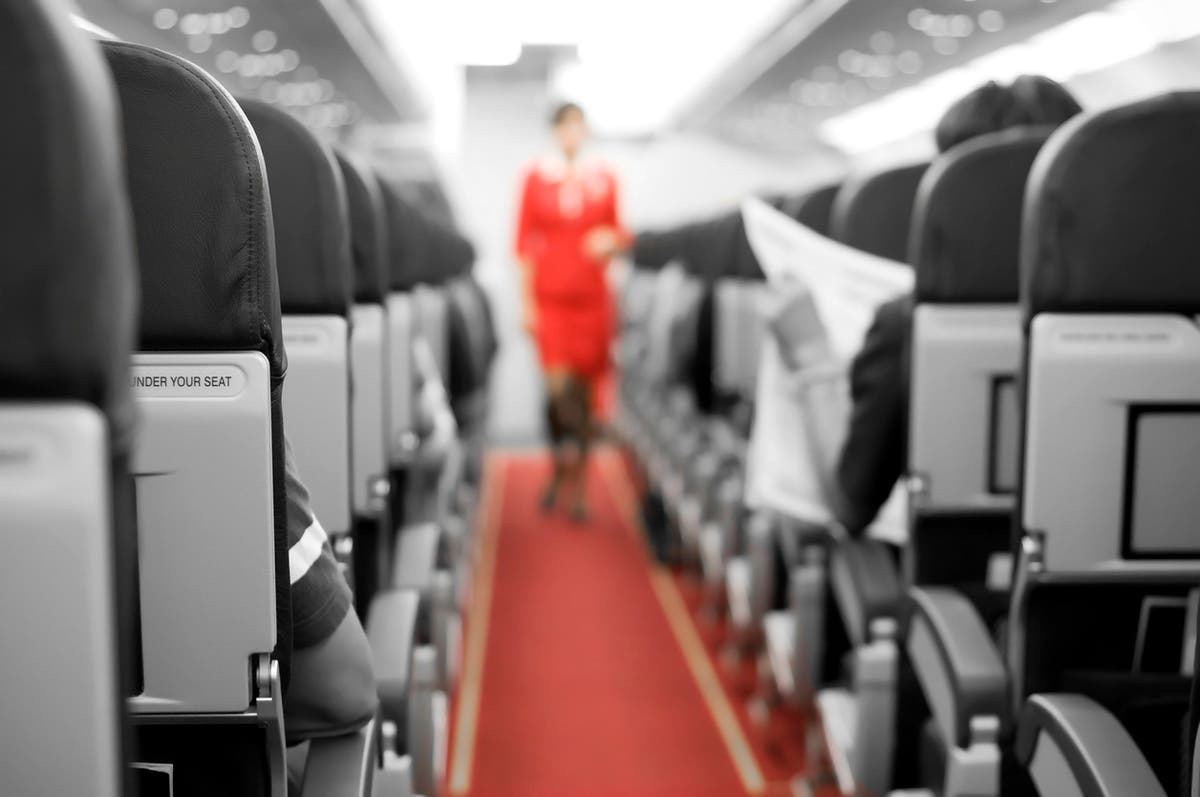This website uses cookies so that we can provide you with the best user experience possible. Cookie information is stored in your browser and performs functions such as recognising you when you return to our website and helping our team to understand which sections of the website you find most interesting and useful.

A US flight attendant has described a “breakdown” within the travel industry in recent years, with another describing the job as “unsustainable” in current conditions.
Many airline workers have seen a drastic increase in work pressures as consumer travellers return to the skies, airlines struggle to cope with the demand following the Covid-19 travel slump, and stressed, out-of-practice holidaymakers return to air travel.
“There’s some kind of breakdown happening that I believe should be preventable,” Allie Malis, government affairs representative at the Association of Professional Flight Attendants, told CNN.
Ms Malis described “uncomfortable” situations where airline staff are forced to spring through airports after arriving on one delayed flight while being scheduled on another imminent departure.
“Sometimes the passengers are cheering that you’re arriving because it means their plane’s going to go, or even that they’re upset ‒ they think it’s your fault that the flight has been delayed when you can’t work two flights at once, although I’m sure the airlines wish we could,” she added.
“It’s completely unsustainable as a job,” agreed British flight attendant Kris Major.
“Sickness levels have gone through the roof, fatigue levels have gone through the roof, not because [cabin crew are] rejecting or they’re protesting in any way,” Mr Major told CNN.
“It’s just that they can’t cope ‒ they just can’t cope with the constant changes.”
A current Lufthansa flight attendant was also quoted as saying: “The lack of staff, delays, cancellations, no baggage ‒ I think it’s a very difficult situation for everybody.”
Ms Malis also took issue with airlines’ statements blaming “staff absences” for the spring and summer flight disruption.
“It’s kind of offensive that we’re being blamed for any type of labour shortage or operational mismanagement, because the airlines have failed to adequately plan,” she told reporters.
“Flight attendants are being maxed out, working the longest days we’ve had, with the shortest rest periods overnight that we’ve had and that does get you sick, that does lead to exhaustion and fatigue and weakens your immune system.”
According to Ms Malis, until recently American Airlines held an absenteeism policy that exposed crew members to disciplinary action if they took Covid-related leave.
An American Airlines spokesperson declined to comment on the policy, but said that “taking care of our crew members at all times, including while they’re away from home, is [the airline’s] priority.”
A spokesperson for Lufthansa told CNN that the aviation industry as a whole is “suffering from bottlenecks and staff shortages, noticeable especially during peak periods.”
Both Malis and Major told reporters that flight attendants who had left the aviation industry during the peak of the Covid-19 pandemic would be hard to recruit back as travel recovers.
“There’s a reason they won’t come back,” said Mr Major. “The industry has created its own problem.”
Ms Malis added: “Why would anyone want to apply to be a flight attendant or any other airline worker when we’re kind of getting worked to the bone?”
The US has suffered thousands of flight delays and cancellations in recent weeks. According to FlightAware data, 912 flights were cancelled and 6,512 delayed on Sunday 7 August.
Last week a flight attendant told press that cabin crew “fear for their safety” due to the anger around flight disruption this spring and summer.



 Africana55 Radio
Africana55 Radio 
